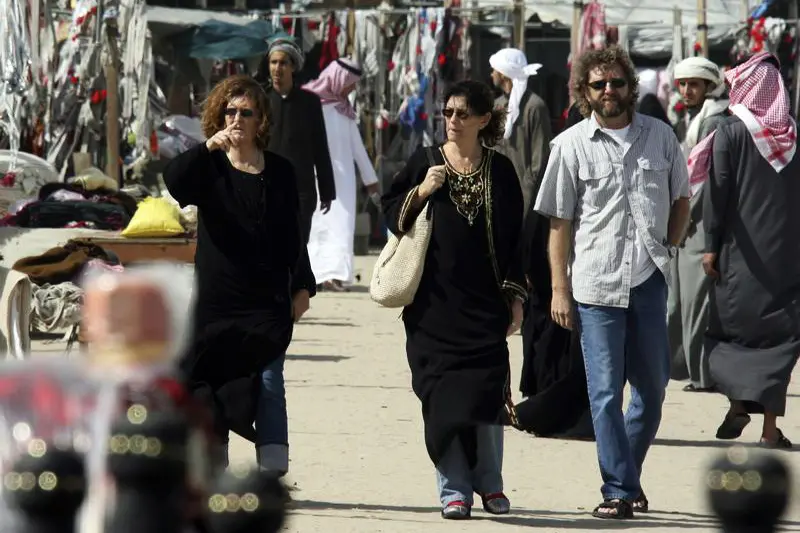PHOTO
Tourism is set to take on a pivotal role in the Saudi Arabian economy, with business, leisure and faith-based travel all identified as vehicles to raise the industry's profile and generate both revenue and employment.
The need to broaden the travel, tourism and hospitality industries was highlighted in the recently unveiled Vision 2030 - a framework outlining the country's long-term economic and social goals.
Under the plan, Saudi Arabia will relax certain visa requirements and renovate local historical and heritage sites, Deputy Crown Prince Mohammed bin Salman Al Saud announced at the launch of the policy blueprint in late April.
Easing of visa restrictions to open doorsThe plan to ease restrictions on some forms of visas will be key to achieving a year-round, nationwide tourism industry.
The post-Umrah tourism programme eases the limits on visas, allowing Umrah pilgrims to extend their stays and travel to a wider variety of destinations in the country, instead of being restricted to holy sites.
The government is also looking at proposals to relax visa limitations to Hajj pilgrims, as well as reducing restrictions on other foreign visitors.
Encouraging visitors to explore Saudi Arabia's other attractions is expected to have a carry-through effect on investment in tourism-related services and infrastructure.
The number of pilgrims coming to Saudi Arabia for Umrah is forecast to grow substantially, from 8m in 2015 to 15m by 2020 and 30m by 2030, according to the Council for Economic and Development Affairs.
Business and domestic travel trendsMoves to further open Saudi Arabia's economy to foreign investors should also drive the acceleration in passenger traffic.
Planned privatisation in some sectors, such as allowing qualified overseas investors to directly trade on the stock exchange and easing restrictions on foreign ownership in Saudi enterprises, is expected to prompt greater business travel to the Kingdom.
This in turn will boost turnover for operators in industries catering to the tourism sector, according to industry stakeholders, who point out that there are a lot of inbound corporate travellers due to the amount of investment coming from outside the Kingdom.
With an increase in facilities and attractions, domestic tourism is also expected to take on a higher profile as continued instability elsewhere in the region, along with rising living costs and the potential for wage stagnation, could accelerate the trend of Saudis travelling and taking holidays at home.
Development pipeline flowingTo keep pace with projected increases in arrivals, the hospitality segment has been working to increase the hotel stock. More than 49,000 new hotel rooms are either under construction or at the final planning stage, consultancy Deloitte reported in late May.
The current push to increase the accommodation offering, along with travel and tourism-related road, port and airport infrastructure projects, should provide increased opportunities for the country's construction sector, which is looking for private sector initiatives to take the place of reduced numbers of government contracts.
Employment is also set to benefit, with the expanded focus on the sector expected to create some 1.3m jobs by 2030, according to a McKinsey Global Institute report released in December, 90% of which will be occupied by Saudis.
Growth potentialTourism and hospitality are among several sectors that have been identified as important for shifting the economy away from hydrocarbons.
Tourism, mainly in the form of pilgrimage and domestic travel, currently contributes around 2.7% to the Kingdom's GDP, a figure McKinsey suggests could accelerate in the years ahead.
Travel, tourism and hospitality is expected to record one of the highest rates of growth over the next decade and a half, expanding by a compound annual growth rate of 11% between 2014 and 2030, second only to advanced manufacturing, according to McKinsey's Saudi Arabia report from late last year.
Oxford Business Group 2016





















